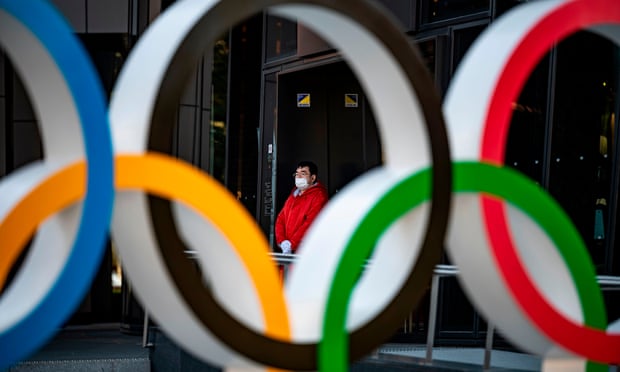- Bach says ‘no reason’ Games will not open on time in July.
- Pound suggests the Olympics could go ahead with no fans.
International Olympic Committee president Thomas Bach declared on Thursday that the Tokyo Olympic Games will go ahead as scheduled this year, reiterating that there is “no plan B” in place.
“We have, at this moment, no reason whatsoever to believe that the Olympic Games in Tokyo will not open on 23 July in the Olympic stadium in Tokyo,” Bach told Kyodo News in an interview just days ahead of the six-month countdown toward the games.
“This is why there is no plan B and this is why we are fully committed to make these games safe and successful,” he added.
After the Games were postponed last year because of the global novel coronavirus pandemic, Saturday marks six months until the rearranged Olympics are due to start. Despite a surge in coronavirus cases leading to much of Japan currently being under severe restrictions, organisers have remained adamant that the Olympics can go ahead.
Meanwhile, the former IOC vice-president Dick Pound says the Olympics could go ahead without fans. “The question is – ‘is this a must-have’ or nice-to-have.’ It’s nice to have spectators. But it’s not a must-have,” Pound said.
Pound is no longer a part of the IOC’s decision-making executive board, but he has been speaking out recently to generate enthusiasm for the postponed Olympics. His interview suggest the Olympics may be shaping up as a largely TV-only event with athletes kept in a bubble, transported back and forth to venues, and encouraged to leave Japan as soon as their participation ends.
Japanese media have said the opening ceremony will be limited to 6,000 athletes. About 11,000 are expected to compete in the Olympics. The Paralympics add another 4,400 athletes.
For the Switzerland-based IOC, getting the event on television – fans or no fans – is critical to its finances with Bach having acknowledged finances are under “pressure” because of the one-year postponement.
The IOC earns 73% of its revenue from selling broadcast rights. In Tokyo this could amount to $2bn to $3bn in lost income if the games were cancelled.
“I think the IOC and the organisers are committed to going ahead with the games, if at all possible,” Pound said. “And so they’re not going to cancel unless there’s a consensus among the government, health authorities and the IOC that it would be too dangerous. But at the moment, the plans are in place. All the indications are that we should go ahead. There’s no reason why the games can’t go on.”

